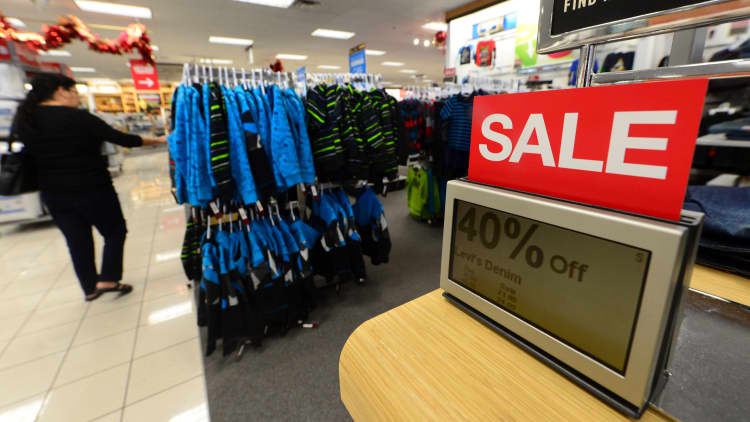
Wal-Mart shares slid to a six-month low on Tuesday morning, after the world's largest retailer reported earnings that mildly missed expectations, with a bevy of factors including adverse currency moves, falling food prices and increased wages weighing on results.
With Wal-Mart's fall, the S&P 500 food and staples retailing group is now down more than 3 percent since the start of the second quarter. That makes it the one of the three worst-performers out of the 24 industry groups (with the other two big sliders being real estate and transportation).
It's not just Wal-Mart. Kroger and Costco are both down more than 4 percent since the start of April, and Whole Foods has slid by a stunning 18 percent.
The problem seems to be that these stocks are at the unfortunate crossroads between a weaker-than-anticipated consumer and falling prices of staples like food and gasoline.
"One key headwind that we faced in Grocery during the first quarter was moderating inflation in meat and deflation in both dairy and produce," Wal-Mart U.S. CEO Greg Foran complained on the company's earnings call.
Similarly, in their April same-store sales results numbers, Costco reported that sales for the month were negatively impacted by "gasoline price deflation."
The problem, of course, is that consumers aren't using these "deflationary" savings to buy more stuff.
"We know that many of our U.S. customers are using their tax refunds and the extra money from lower gas prices to pay down debt or put it into savings," Wal-Mart CEO Doug McMillon said.
With gas prices low, and investors not using the savings to buy more food and consumers staples, these stocks are in an unfortunate spot indeed.
Want to be part of the Trading Nation? If you'd like to call in to our live Monday show, email your name, number and question to TradingNation@cnbc.com.






